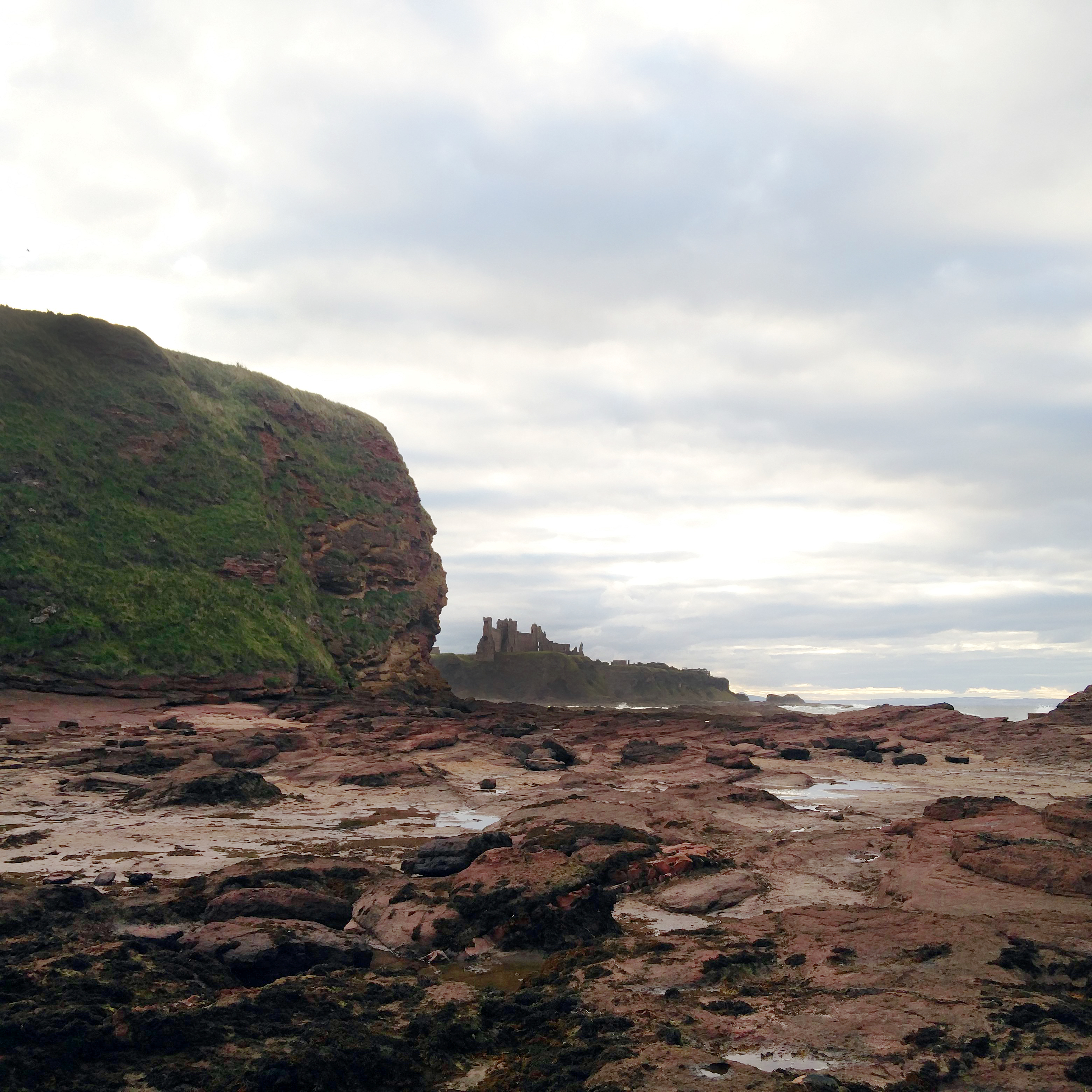Posts on: Nature
Messy, speculative dispatches from an alien encounter…
On a visit up to Scotland two weeks ago to see Nick, we, utterly accidentally, came across alien territory: territory all the more alien for being so absolutely earthly.



Vast Martian expanses of rusty red rock; the half-destroyed 14th century Tantallon Castle on the horizon; a small harbour filled with grubby, viscous sea foam; an eerily neat pile of slimy seaweed tentacles; a brooding, apocalyptic sky… It was all utterly unhomely, utterly untimely: simultaneously before and after the end of the world, in and out of time, on and off this planet.
We were lost for words, revelling in this place’s unanswerable secrets. This place was literally, not at all metaphorically, psychedelic.
Retroactively, we discovered this place was called Seacliff – but all accounts of it seem to domesticate it or make it cosy, effacing its eerie cosmic energy. It’s all compartmentalised and explained away: all tales of war games, private beaches and the wealthy families who own them, tourists and dogwalkers, the local crab fisherman who uses the harbour.
Nice try, but the rocks speak for themselves. Seacliff is far more weird, trippy and unsettling than any of these authorities could ever admit. The question remains though: why?
*
Maybe it’s all just sublimity. The sublime, as theorised by many philosophers including Kant and Burke, refers to a kind of objective, absolute magnitude that is of such a quantity that it overwhelms all our faculties of comprehension. Think of, say, the Grand Canyon, or the view of Earth from the Moon, or the waves continually crashing against overhanging cliffs: this is the sublime – a grand magnitude that leaves our mouths agape, lost for words (for such crude human inventions cannot possibly do it justice). As this demonstrates, the sublime lies beyond such sense-faculties – it is supersensible, a surplus or leftover that cannot be captured, explained, and operationalised.
The feeling of the sublime, however, doesn’t totally capture the affect evoked at Seacliff. Sublimity seems to suggest a kind of separation between the exorbitant, excessive sublime object and the limited subject-interior that is submitted to, and has to adapt to, it. But the feeling at Seacliff wasn’t exactly about some grand exterior object that we could merely gawk up at – instead, it was about a vast exteriority that was revealed to have been “in” us from the beginning. This was the unsettling – and psychedelic – thing about Seacliff and its cooled volcanic landscapes: rupturing through the surface-level tension of our everyday experiences, it seemed to expose some traumatic, repressed core that had been underlying them this whole time, without us noticing. The most internal became the most external…
Read More »